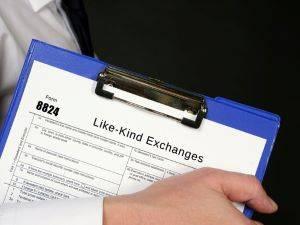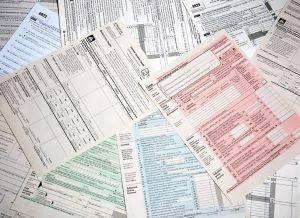Recent Blog Posts
How Will Changes to Federal Rules Affect Worker Classification?
 The United States economy has changed significantly over the past decade. More and more workers are participating in what is known as the “gig economy” or “sharing economy,” allowing them to set their own schedules while completing tasks such as transporting passengers or making deliveries. While these types of arrangements have benefited many workers and those who use their services, questions have been raised about worker classification and whether certain types of gig workers should be considered independent contractors or employees. While several states, including California, have implemented laws to address this issue, the federal government has also weighed in on the topic. A recent rule change from the Department of Labor created a test that should be used to determine whether a worker is self-employed or is dependent on an employer.
The United States economy has changed significantly over the past decade. More and more workers are participating in what is known as the “gig economy” or “sharing economy,” allowing them to set their own schedules while completing tasks such as transporting passengers or making deliveries. While these types of arrangements have benefited many workers and those who use their services, questions have been raised about worker classification and whether certain types of gig workers should be considered independent contractors or employees. While several states, including California, have implemented laws to address this issue, the federal government has also weighed in on the topic. A recent rule change from the Department of Labor created a test that should be used to determine whether a worker is self-employed or is dependent on an employer.
How the Recent COVID-19 Relief Bill Affects Small Businesses and Taxpayers
 The COVID-19 pandemic has led to struggles for many people and businesses. While the rollout of vaccines in 2021 will eventually allow for a return to normal activities, many businesses will continue to experience a loss of revenue due to requirements to close, scale back operations, or lay off employees. Fortunately, the federal government has implemented programs meant to provide relief to businesses and taxpayers who have been affected by the pandemic. The Coronavirus Response and Relief Supplemental Appropriations Act of 2021 (CRRSAA), which was signed into law on December 27, 2020, made a number of changes that may benefit both small businesses and individual taxpayers. These include:
The COVID-19 pandemic has led to struggles for many people and businesses. While the rollout of vaccines in 2021 will eventually allow for a return to normal activities, many businesses will continue to experience a loss of revenue due to requirements to close, scale back operations, or lay off employees. Fortunately, the federal government has implemented programs meant to provide relief to businesses and taxpayers who have been affected by the pandemic. The Coronavirus Response and Relief Supplemental Appropriations Act of 2021 (CRRSAA), which was signed into law on December 27, 2020, made a number of changes that may benefit both small businesses and individual taxpayers. These include:
- Additional PPP loans - The Paycheck Protection Program, which was implemented as part of the CARES Act of 2020, provided loans for businesses, and these loans were forgivable so long as a business could show that a certain percentage of the loan was used for payroll purposes. Under the CRRSAA, businesses that had previously received a PPP loan will be able to receive an additional loan, although to qualify, a business must not be publicly owned, it must employ fewer than 300 people, and it must be able to show that its gross receipts in any quarter of 2020 were 25% less than in the same quarter in 2019. First-time loans will also be available to businesses that had not previously taken a PPP loan, and eligible businesses include self-employed individuals, independent contractors, and sole proprietors.
How Have IRS Rules Changed for Section 1031 Like-Kind Exchanges?
 Major financial transactions can have a variety of tax consequences, but taxpayers may be able to make use of tax laws and regulations to minimize the taxes they will be required to pay. Real estate transactions will often result in capital gains taxes being applied to the profits earned, but in some cases, a taxpayer may be able to use a “like-kind exchange” to defer the taxes owed. However, the Tax Cuts and Jobs Act (TCJA) of 2017 made some changes to the types of property that can be included in these exchanges, and the IRS recently issued new rules that will apply in these cases.
Major financial transactions can have a variety of tax consequences, but taxpayers may be able to make use of tax laws and regulations to minimize the taxes they will be required to pay. Real estate transactions will often result in capital gains taxes being applied to the profits earned, but in some cases, a taxpayer may be able to use a “like-kind exchange” to defer the taxes owed. However, the Tax Cuts and Jobs Act (TCJA) of 2017 made some changes to the types of property that can be included in these exchanges, and the IRS recently issued new rules that will apply in these cases.
What Is a Like-Kind Exchange?
Section 1031 of the Internal Revenue Code allows taxpayers to defer capital gains taxes when selling certain types of property if the proceeds from the sale are reinvested into replacement property. The replacement property must be of a “like-kind” to the original property, meaning that it is property of the same type. Typically, business or investment property can be exchanged for other business or investment property.
What Tax Issues Need to Be Addressed Upon Expatriation From the U.S.?
 People who live in the United States are required to pay a variety of different types of taxes. Because the U.S. Tax Code is so complex, taxpayers are not always aware of issues that may affect the taxes they pay, and they may encounter situations that trigger unexpected tax obligations. In addition to paying taxes while residing in the United States, taxpayers will also need to meet certain requirements when moving to other countries.
People who live in the United States are required to pay a variety of different types of taxes. Because the U.S. Tax Code is so complex, taxpayers are not always aware of issues that may affect the taxes they pay, and they may encounter situations that trigger unexpected tax obligations. In addition to paying taxes while residing in the United States, taxpayers will also need to meet certain requirements when moving to other countries.
U.S. citizens who plan to relinquish their citizenship or permanent residency “Green Card” holders who will no longer be lawful permanent residents of the United States will need to follow expatriation procedures with the IRS. In some cases, an exit tax may apply, or a person may face a tax audit based on his or her compliance with tax obligations in previous years. By working with a tax law attorney, these individuals can understand their obligations and take steps to minimize penalties and avoid ongoing tax issues.
How Changing IRS Programs May Affect Foreign Tax Compliance
 U.S. taxpayers who own offshore accounts or other foreign assets may struggle to understand their requirements for reporting foreign investments to the Internal Revenue Service (IRS) and paying taxes on foreign income. In some cases, these matters have become even more confusing following recent changes to the programs the IRS has made available to taxpayers. In 2018, the IRS ended the Offshore Voluntary Disclosure Program (OVDP), and recently, it also took down the Delinquent International Information Return Submission Procedures (DIISP) from its website. This has left many taxpayers concerned about their ability to become compliant with IRS requirements and avoid penalties related to reporting foreign assets and income.
U.S. taxpayers who own offshore accounts or other foreign assets may struggle to understand their requirements for reporting foreign investments to the Internal Revenue Service (IRS) and paying taxes on foreign income. In some cases, these matters have become even more confusing following recent changes to the programs the IRS has made available to taxpayers. In 2018, the IRS ended the Offshore Voluntary Disclosure Program (OVDP), and recently, it also took down the Delinquent International Information Return Submission Procedures (DIISP) from its website. This has left many taxpayers concerned about their ability to become compliant with IRS requirements and avoid penalties related to reporting foreign assets and income.
What Is DIISP?
Previously, the DIISP allowed taxpayers to receive a waiver of the penalties that would normally apply to unreported foreign assets. Taxpayers could qualify for the DIISP if they did not have any unreported income, as long as they could show that they had reasonable cause for their non-compliance, such as death, serious illness, natural disasters, or ignorance of tax laws.
How Will Proposition 19 Affect California Property Taxes?
 Tax laws in the United States change regularly at both the federal and state levels. In the 2020 election, California voters passed a ballot measure that made some changes to how property taxes are addressed when a person moves to a new home or transfers ownership of real estate property. Taxpayers will want to understand how this new law will affect them and what they can do to avoid tax increases.
Tax laws in the United States change regularly at both the federal and state levels. In the 2020 election, California voters passed a ballot measure that made some changes to how property taxes are addressed when a person moves to a new home or transfers ownership of real estate property. Taxpayers will want to understand how this new law will affect them and what they can do to avoid tax increases.
Proposition 19 and Property Tax Reassessment
Under Proposition 13, which passed in 1978, property taxes in California are based on the purchase price of a property, and they are subject to small annual increases. When a property is sold or transferred to a new owner, property taxes are reassessed based on the market value of the property. However some homeowners have been allowed to transfer their property tax assessments to a new home. In addition, parents or grandparents could transfer a primary residence to their children or grandchildren without the need for reassessment, and they could transfer other types of property with the first $1 million in value being exempt from reassessment.
Can I Be Audited Based on Virtual Currency Transactions?
 The IRS pays close attention to taxpayers’ income and financial transactions, and there are a variety of reasons it may conduct tax audits. In recent years, virtual currencies such as Bitcoin have been a growing concern for the IRS, and many cryptocurrency owners have received notices regarding their requirements for reporting transactions involving these currencies. This scrutiny is likely to increase in the future as the use of virtual currencies becomes more widespread. In fact, the IRS released a draft of the 1040 tax form for 2020, and one of the first questions that is included on this form is “At any time during 2020, did you receive, sell, send, exchange, or otherwise acquire any financial interest in any virtual currency?” This indicates that those who own or trade cryptocurrency may face audits if they do not meet their requirements for reporting transactions and paying applicable taxes.
The IRS pays close attention to taxpayers’ income and financial transactions, and there are a variety of reasons it may conduct tax audits. In recent years, virtual currencies such as Bitcoin have been a growing concern for the IRS, and many cryptocurrency owners have received notices regarding their requirements for reporting transactions involving these currencies. This scrutiny is likely to increase in the future as the use of virtual currencies becomes more widespread. In fact, the IRS released a draft of the 1040 tax form for 2020, and one of the first questions that is included on this form is “At any time during 2020, did you receive, sell, send, exchange, or otherwise acquire any financial interest in any virtual currency?” This indicates that those who own or trade cryptocurrency may face audits if they do not meet their requirements for reporting transactions and paying applicable taxes.
How Do Taxes Apply to Rental Property Owned by Nonresident Aliens?
 The U.S. Tax Code is very complex, and taxpayers will often struggle to understand their tax obligations, their requirements for filing tax returns and other forms, and the steps they should take to avoid penalties. Nonresident aliens (NRAs), or those who are not U.S. citizens or U.S. nationals and do not maintain a substantial presence in the United States, may have certain tax obligations, including the requirement to pay taxes on income generated by rental properties. Failure to file the proper forms and pay taxes on this income may result in tax audits and penalties.
The U.S. Tax Code is very complex, and taxpayers will often struggle to understand their tax obligations, their requirements for filing tax returns and other forms, and the steps they should take to avoid penalties. Nonresident aliens (NRAs), or those who are not U.S. citizens or U.S. nationals and do not maintain a substantial presence in the United States, may have certain tax obligations, including the requirement to pay taxes on income generated by rental properties. Failure to file the proper forms and pay taxes on this income may result in tax audits and penalties.
Tax Requirements for Rental Income From Real Property
When an NRA acquires real property in the United States, that person will usually not be required to file any forms with the IRS or pay taxes. However, there will be tax on any income earned through the rental of this property. The tax rate that applies to this income will depend on whether it is considered passive income (known as FDAP income) or effectively connected income (ECI) that is associated with a U.S. trade or business.
Foreign Tax Compliance for Those Who Did Not Complete the Offshore Voluntary Disclosure Program
 U.S. taxpayers are required to report foreign financial accounts and other offshore assets and investments, and taxes may apply to income earned from foreign sources. In the past, the IRS allowed taxpayers who had not met these requirements to become compliant through the Offshore Voluntary Disclosure Program (OVDP). This program is no longer available, and it has left some taxpayers unsure about how to report their foreign assets and pay any taxes owed while minimizing the potential penalties that may apply.
U.S. taxpayers are required to report foreign financial accounts and other offshore assets and investments, and taxes may apply to income earned from foreign sources. In the past, the IRS allowed taxpayers who had not met these requirements to become compliant through the Offshore Voluntary Disclosure Program (OVDP). This program is no longer available, and it has left some taxpayers unsure about how to report their foreign assets and pay any taxes owed while minimizing the potential penalties that may apply.
One issue that the IRS has identified as an area of concern involves taxpayers who applied for pre-clearance with the OVDP but did not complete this program. Specifically, some taxpayers may have been denied access to the program, or they may have voluntarily withdrawn their requests. The IRS’s Large Business & International (LB&I) division will be investigating these taxpayers, and tax audits may be performed in cases involving continued noncompliance.
Can I Be Audited Because of Incorrect Filing of Form 5471?
 The U.S. tax code is very complex, and taxpayers are required to file a wide variety of forms correctly when completing their tax returns. This is especially true for those who own foreign assets or earn income from foreign sources. Failure to meet these requirements can result in tax audits, and taxpayers may face hefty penalties for their failure to comply with their tax requirements.
The U.S. tax code is very complex, and taxpayers are required to file a wide variety of forms correctly when completing their tax returns. This is especially true for those who own foreign assets or earn income from foreign sources. Failure to meet these requirements can result in tax audits, and taxpayers may face hefty penalties for their failure to comply with their tax requirements.
The Large Business & International (LB&I) division of the Internal Revenue Service maintains a number of “campaigns” meant to address ongoing concerns about misreporting of assets and income and noncompliance with tax obligations. One notable campaign addresses “loose filing” of Form 5471, (Information Return of U.S. Persons with Respect to Certain Foreign Corporations).









